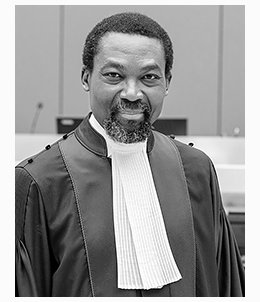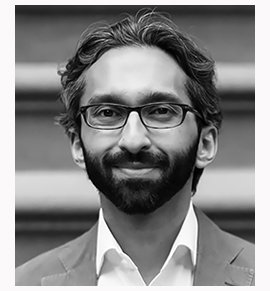 A conversation with Leila Sadat, a professor of law at Washington University School of Law in St. Louis, the United States, and Special Advisor on Crimes Against Humanity to the Chief Prosecutor of the International Criminal Court in The Hague. We discuss Leila’s decade long work as part of effort to establish an international convention for the prevention and punishment of crimes against humanity, and why such a convention is important, notwithstanding that crimes against humanity are addressed in the Rome Statute. This leads us into an examination of the role of the ICC in prosecuting crimes against humanity, the relationship between crimes against humanity and genocide, the ILC’s work on developing a draft convention, the current status of the effort to establish the convention, and the significance of the U.N. Sixth Committee to the process. A wide ranging and fascinating discussion!
A conversation with Leila Sadat, a professor of law at Washington University School of Law in St. Louis, the United States, and Special Advisor on Crimes Against Humanity to the Chief Prosecutor of the International Criminal Court in The Hague. We discuss Leila’s decade long work as part of effort to establish an international convention for the prevention and punishment of crimes against humanity, and why such a convention is important, notwithstanding that crimes against humanity are addressed in the Rome Statute. This leads us into an examination of the role of the ICC in prosecuting crimes against humanity, the relationship between crimes against humanity and genocide, the ILC’s work on developing a draft convention, the current status of the effort to establish the convention, and the significance of the U.N. Sixth Committee to the process. A wide ranging and fascinating discussion!
Materials:
– “Little Progress in the Sixth Committee on Crimes Against Humanity,” 54 Case Western Reserve Journal of International Law 89 (2022);
– “Towards a New Treaty on Crimes Against Humanity: Next Steps,” Just Security, Sept. 13, 2021;
– Forging a Convention on Crimes Against Humanity (Leila Sadat, ed., 2013);
– ILC Draft Articles on the Prevention and Punishment of Crimes Against Humanity (2019).
Reading Recommendations:
– Oona Hathaway and Scott Shapiro, The Internationalists: How a Radical Plan to Outlaw War Remade the World (2017);
– Philippe Sands, East West Street: On the Origins of “Genocide” and “Crimes Against Humanity” (2016);
– Carol Anderson, The Second: Race and Guns in a Fatally Unequal America (2021).
 In this episode I speak with
In this episode I speak with  In this episode I speak with
In this episode I speak with 


 In this episode I speak with Samuel Moyn, who is a Professor of Jurisprudence at Yale Law School and Professor of History at Yale University. Sam has written a number of books on issues at the intersection of history and international human rights, but we here discuss his most recent book, Humane: How the United States Abandoned Peace and Reinvented War. Taking off from an insight of Leo Tolstoy’s, the book provocatively explores how an increasing focus on the humanization of war may have made us more accepting of armed conflict, and thereby undermined the movement to constrain the resort to war. In our discussion we explore some of the historical accounts that form the premises of this argument, including the claim that IHL did little to make war more humane until after the Vietnam war, particularly in the history of Western conflicts with non-white peoples; how armed conflict become far more humanized in the so-called “global war on terror;” and how this increasing focus on humanizing war has resulted in a corresponding decline in efforts to constrain the resort to war. We dig into the nature and implications of this claimed inverse relationship, and what forces and actors he thinks help to explain the phenomenon, and end with the question of what might might be done, and by whom, to address the problem of this declining focus on preventing war – an urgent question in the circumstances.
In this episode I speak with Samuel Moyn, who is a Professor of Jurisprudence at Yale Law School and Professor of History at Yale University. Sam has written a number of books on issues at the intersection of history and international human rights, but we here discuss his most recent book, Humane: How the United States Abandoned Peace and Reinvented War. Taking off from an insight of Leo Tolstoy’s, the book provocatively explores how an increasing focus on the humanization of war may have made us more accepting of armed conflict, and thereby undermined the movement to constrain the resort to war. In our discussion we explore some of the historical accounts that form the premises of this argument, including the claim that IHL did little to make war more humane until after the Vietnam war, particularly in the history of Western conflicts with non-white peoples; how armed conflict become far more humanized in the so-called “global war on terror;” and how this increasing focus on humanizing war has resulted in a corresponding decline in efforts to constrain the resort to war. We dig into the nature and implications of this claimed inverse relationship, and what forces and actors he thinks help to explain the phenomenon, and end with the question of what might might be done, and by whom, to address the problem of this declining focus on preventing war – an urgent question in the circumstances. In this first episode of Season 3 of the podcast, I speak with
In this first episode of Season 3 of the podcast, I speak with  In the last episode of Season 2, I speak with
In the last episode of Season 2, I speak with  In this episode, I speak with
In this episode, I speak with 

 In this episode I discuss the legal issues raised in the Gaza conflict of May 2021, with Professors
In this episode I discuss the legal issues raised in the Gaza conflict of May 2021, with Professors  In this episode, I speak with
In this episode, I speak with